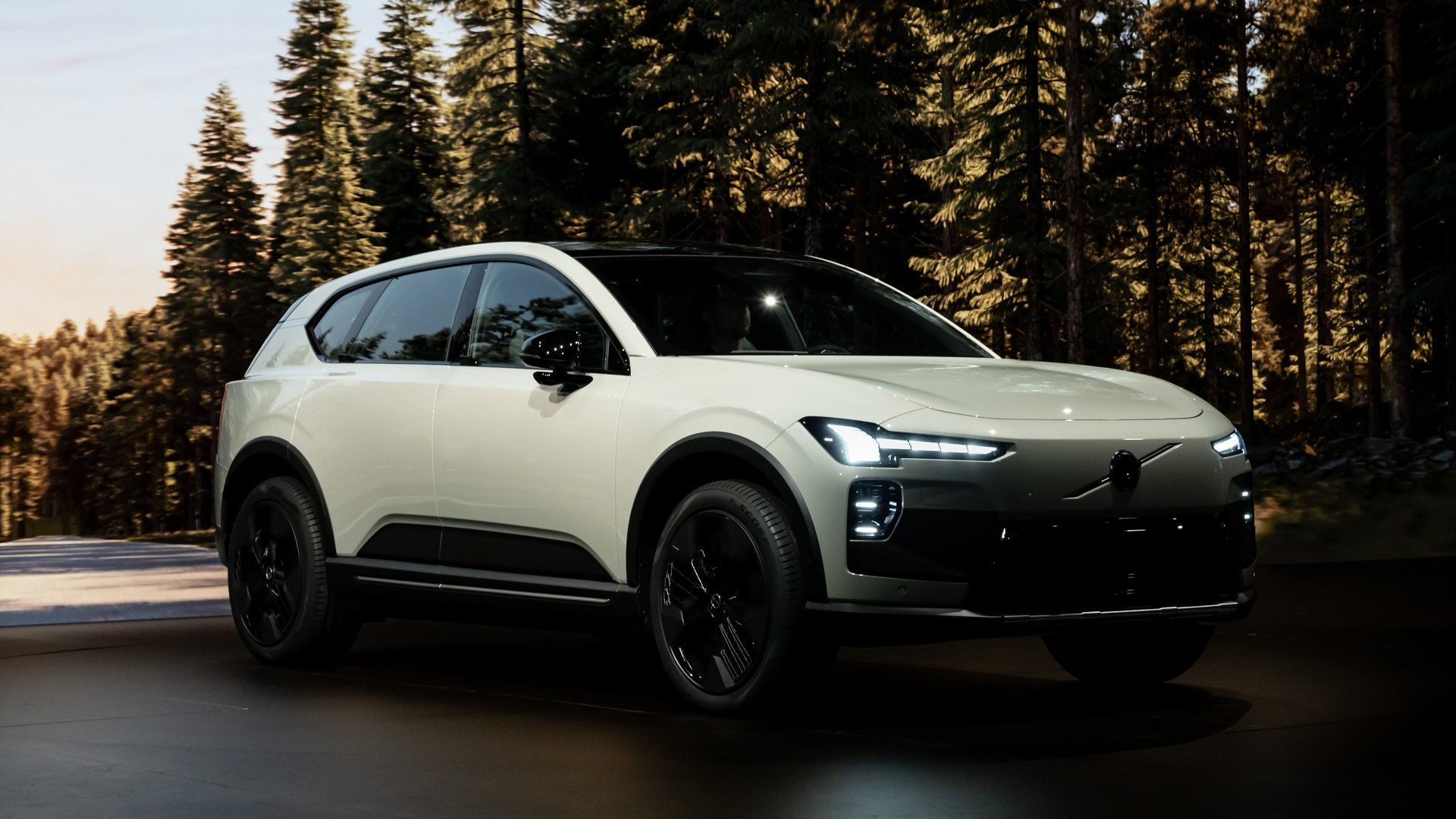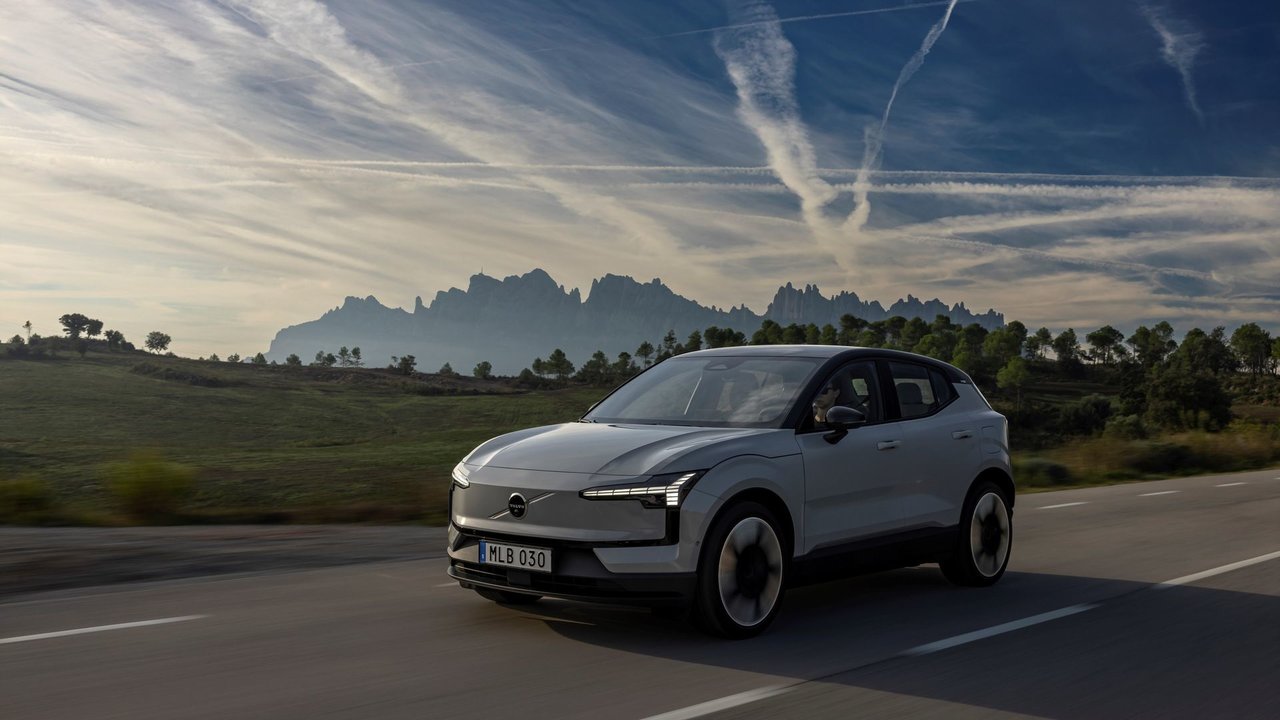
2027 Volvo EX60 Unveiled: Advanced AI Integration and Class-Leading Electric Range
Volvo has unveiled the 2027 EX60, an all-electric mid-size SUV that addresses the core concerns holding many drivers back from going electric. With...
Read moreVolvo Cars Mississauga

The automotive world is changing rapidly, and terms like "core computer" and "centralized computing" are becoming as important as horsepower and fuel economy. For drivers in Ontario considering their next vehicle purchase, understanding these technologies can help explain why some cars feel more responsive, receive meaningful updates over time, and integrate technologies more smoothly than others.
Both the fully electric Volvo EX90 and EX30 feature what Volvo calls a core computer system – essentially a powerful central brain that coordinates all the vehicle's electronic functions. Rather than having dozens of separate computers handling different tasks throughout the car, this single, more powerful system manages everything from the infotainment screen to the advanced safety features. The result is a more integrated, responsive, and future-ready driving experience.
What Makes a Core Computer Different
Traditional vehicles use what engineers call a distributed computing approach. Your radio has its own computer, your safety systems have separate processors, and your navigation runs on yet another system. These individual computers communicate with each other, but they're essentially independent units working together.
The core computer approach consolidates this processing power into one central unit, similar to how your smartphone handles everything from photos to messages to navigation through a single processor. This centralization allows for faster communication between systems, more sophisticated features, and the ability to add new capabilities through software updates.
Faster Response Times You Can Feel
The most noticeable benefit of centralized computing is responsiveness. When you touch the infotainment screen in an EX90 or EX30, the system responds almost instantly because there's no delay waiting for multiple computers to communicate with each other.
This speed advantage extends beyond the touchscreen. Safety systems can react more quickly because the core computer processes information from cameras, radar, and LiDAR sensors simultaneously rather than waiting for separate systems to share data. Climate control, navigation, and entertainment systems all benefit from this integrated approach.
Software Updates That Actually Matter
The core computer enables meaningful over-the-air updates that can add new features and improve existing ones. Rather than simple bug fixes, these updates can introduce entirely new capabilities – similar to how smartphone updates add features you didn't have before.
Volvo has demonstrated this capability by adding new safety features, improving battery management, and enhancing the user interface through software updates. This means your EX90 or EX30 can become more capable over time, protecting your investment and extending the vehicle's useful life.
Key Takeaways
|
Benefit |
How It Helps |
|---|---|
|
Faster Performance |
Instant touchscreen response and quicker system integration |
|
Future-Ready Design |
Ability to add new features through software updates |
|
Better Integration |
Seamless communication between safety, entertainment, and vehicle systems |
|
Simplified Maintenance |
Fewer individual computers means fewer potential failure points |
Google Built-In and Advanced Integration
The core computer makes advanced integrations possible, such as Google built-in functionality that goes beyond simple smartphone projection. The system can run Google Assistant, Google Maps, and Google Play directly, without needing a connected phone.
This deep integration means voice commands work more reliably, navigation can control other vehicle systems (like adjusting climate control based on your destination), and the system learns your preferences across all functions rather than treating each as a separate application.
The computing power also enables features like the 360-degree camera system in both vehicles, which processes multiple video feeds simultaneously to create a real-time bird's-eye view around the vehicle. Traditional distributed systems would struggle to coordinate this level of real-time video processing.
Real-World Benefits for Ontario Drivers
For families in Ontario, the core computer translates to practical advantages. The system can remember multiple driver profiles with personalized settings for seat position, climate preferences, and navigation shortcuts. When switching between family members, the transition happens quickly because one system manages all these preferences rather than multiple computers needing to sync.
The integration also improves cold weather performance – a crucial consideration for Canadian drivers. The core computer can coordinate battery heating, cabin preconditioning, and route planning based on current weather conditions and your departure time, optimizing everything from a single system rather than requiring multiple computers to work together.
Learn More at Volvo Cars Mississauga
The shift to centralized computing represents a fundamental change in how vehicles operate, and both the EX90 and EX30 showcase how this technology can improve the daily driving experience. From faster response times to meaningful software updates, the core computer delivers benefits that traditional automotive architectures simply cannot match.
Visit our team right here in Mississauga to learn more about how these advanced technologies can enhance your driving experience and explore the capabilities of Volvo's latest electric vehicles.

2027 Volvo EX60 Unveiled: Advanced AI Integration and Class-Leading Electric Range
Volvo has unveiled the 2027 EX60, an all-electric mid-size SUV that addresses the core concerns holding many drivers back from going electric. With...
Read more
2026 Volvo XC40 B5 vs. EX40: Choosing Between Mild Hybrid and Full Electric
The XC40 platform offers two distinct powertrain approaches built on identical compact SUV architecture. The XC40 B5 AWD pairs a turbocharged...
Read more
2026 Volvo EX60: Range, Charging, and What Sets This Mid-Size Electric SUV Apart
Volvo will reveal the EX60 on January 21, 2026, introducing the company's most advanced electric vehicle architecture to the mid-size SUV segment....
Read more